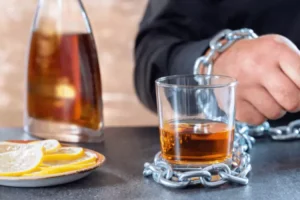Total Alcohol Abstinence vs Moderation: Which One Wins in the End?

The study of relationships in society suggests that your moral values have a direct influence on your sense of self in society. It is very important to note that this study specifically excluded people who had previously been admitted to alcohol or drug treatment as well as those who had symptoms of severe alcohol withdrawal at any point in their life (like delirium tremens and such). This means that the participants likely did not include some of the most severe alcoholic cases. The Bluffs is a private alcohol, substance abuse and mental health treatment facility located in central Ohio. At Lighthouse Recovery Institute, we believe in offering customized alcohol abuse treatment plans for those struggling with drug abuse. We look at each program on a case-by-case basis to cater to your needs to get better and walk towards recovery.
- Other modalities will include individual counseling and support groups to encourage recovery.
- You might wonder if there’s a healthy way to drink, how much alcohol consumption is considered moderate, and how much is too much.
- Are you someone who likes to ease into things, or do you prefer an all-or-nothing approach to change?
- The moderation management association was formed in 1994 as a disputable partner to the more conventional and restraint disapproved of AA.
- According to the National Institute on Alcohol Abuse and Alcoholism (NIAAA), the definition of moderate alcohol use differs for men and women.
- If you want to resolve problem drinking without medication, abstinence may be a better choice for you.
- 12-step programs alone do not usually address the underlying need that’s been suppressed through alcohol.
How Do You Practice Controlled Drinking?
People who have had problems with alcohol in the past may want to consult a doctor or therapist for help regulating their behaviors around drinking. However, it’s important to keep in mind that naltrexone will not prevent you from becoming inebriated or drunk from alcohol. Just because you can’t feel the typical “high” from alcohol while taking naltrexone, it does not mean you should drive or perform other dangerous https://ecosoberhouse.com/ activities while under the influence of alcohol. Survey weights were used throughout the analyses to statistically account for any under-representation in the KnowledgePanel sample, as well as differential responding to the National Recovery Study screening question. As such, these findings can be seen as representing the US population. [2] “Extended abstinence is predictive of sustained recovery.” (July 2008).
- According to this theory, there are 17.7 million alcoholics in America in 2012.[5] By limiting the amount through moderation management and frequency of drinks they consume, they can manage their addiction.
- The population of people who use MM is pretty well educated and is made up for the most part of problem drinkers rather than those meeting full-blown alcohol dependence criteria.
- Others may be looking for ways to slow things down, while some may be trying to figure out a way to keep doing substance abuse behaviors while making those practices safer and reducing their chances of causing harmful side effects through moderation management.
- Attempts at moderation may not be worth the effort or the risk when considering the consequences.
- Such people may choose to cease abusing alcohol after remaining in moderation management for a while.
- Some clinicians and researchers posit that the field’s current emphasis on abstinence-based recovery may fail to engage many individuals with SUD because of perceptions that a goal of abstinence is required to engage with care.
Is Abstinence The Best Option?
This response rate is similar to other nationally representative surveys (Grant et al., 2015, Center for Behavioral Health Statistics and Quality, 2016, Centers for Disease Control and Prevention, 2013). Data were weighted using the method of iterative proportional fitting so as to represent the US civilian population (Battaglia et al., 2009). A total of 2,002 individuals who had resolved an AOD problem were included in the final analyses. Our team at CATCH strongly believes in holistic healing methods as part of this process. We recognise that addiction affects not just the body but also the mind and spirit. Therefore, our programme includes evidence-based therapies such as cognitive behavioural therapy (CBT) or dialectical behaviour therapy (DBT).

Complete sobriety might not always be a realistic solution for heavy drinkers.
In this case, moderation serves as a harm reduction strategy that minimizes the negative consequences of drinking. It’s a healthy step in a positive direction, and is often achievable with medication. When it comes to your health, drinking alcohol can be a balancing act.

Emotional resilience begins to grow as you learn new ways to cope with stress or anxiety without reaching for a drink. Cultural perspectives on alcohol also influence our attitudes towards its use and misuse, shaping norms around what constitutes controlled drinking vs abstinence acceptable levels of consumption. While some cultures romanticise heavy drinking others promote temperance; being aware of these cultural influences can aid in reshaping your own relationship with alcohol and eliminate harmful drinking patterns.

The ability to control drinking varies significantly from person to person and is influenced by a range of factors including genetics, environment, emotional state, and individual psychology. For people suffering from alcohol use disorders, trying to moderate drinking isn’t advised and total abstinence is always recommended. However, it’s vital to acknowledge that not every journey is smooth sailing.
- These goals differ from person to person and range from total abstinence to reduced alcohol consumption.
- Different people may be drawn to trying a moderation approach for a variety of reasons.
- Before deciding whether you want to embark on an abstinence or moderation-based journey, it’s essential to pinpoint your condition and desire to quit drinking.
- Moderation management, which focuses on a particular way to deal with recuperation with no care groups or normal gatherings to join in, uses the Addictive Voice Acknowledgment Method.
- For those with more severe alcohol use disorders, trying to quit drinking cold turkey can also be dangerous to their health and in some cases, even deadly.
- The internet is full of misinformation about the risks of alcohol intake.
The Benefits of Quitting Drinking for Good

Written by Thrivalist Sobriety

